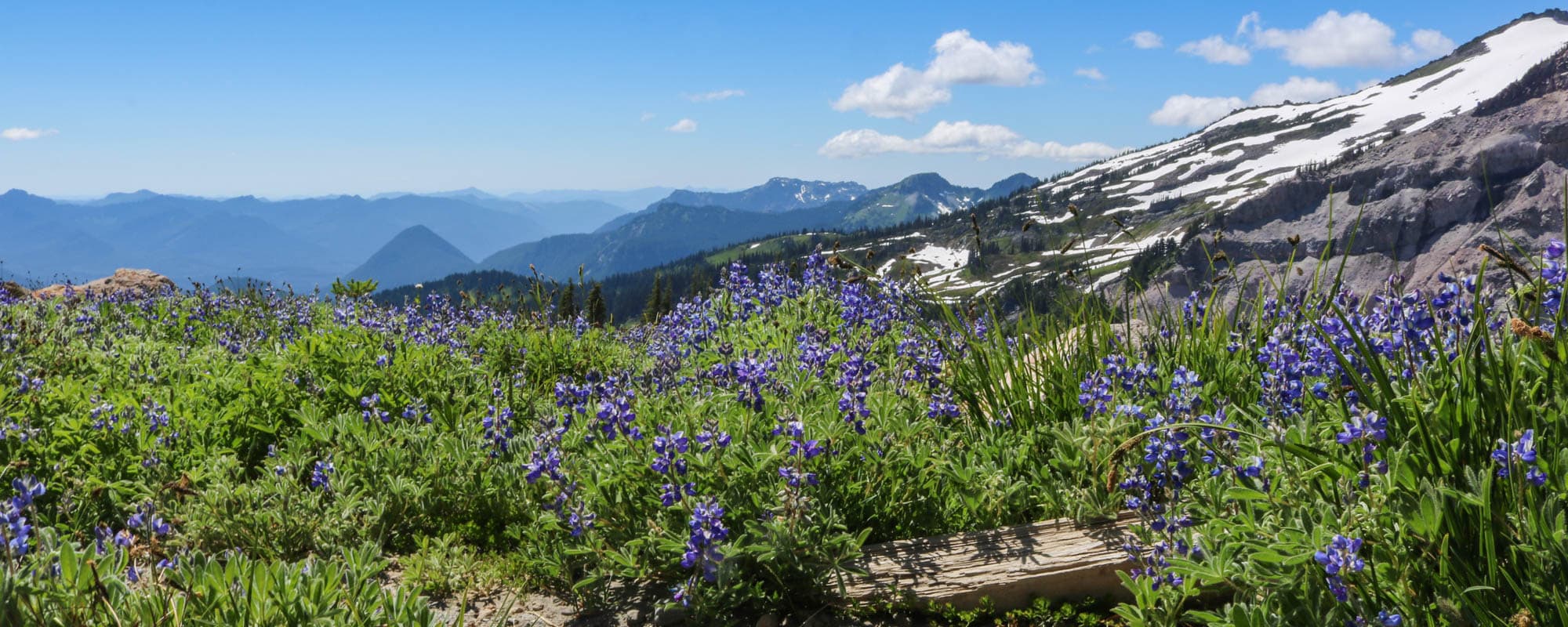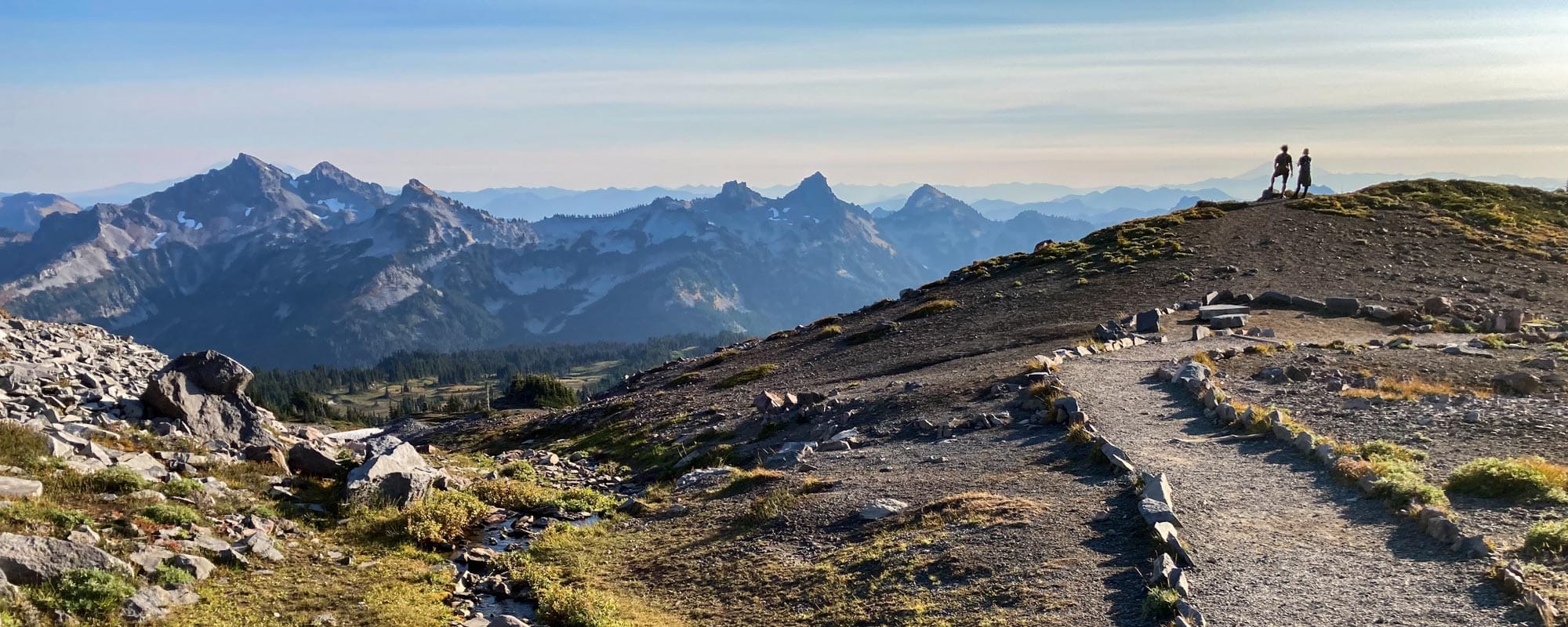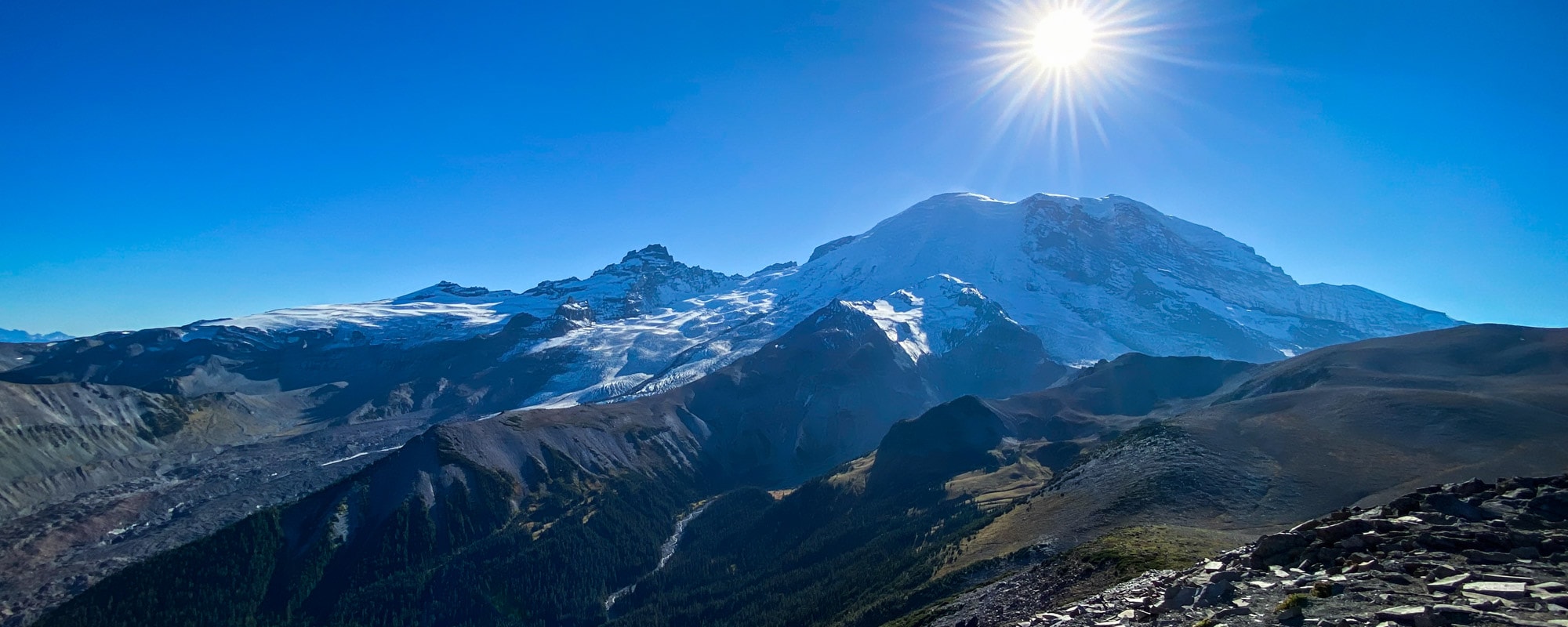Centered on majestic Mount Rainier, this is one of the most popular and oldest national parks in America. Attractions include roaring waterfalls, summer wildflowers, fall foliage, abundant wildlife and massive glaciers.

One of the three amazing national parks in Washington State, Mount Rainier National Park is less than two hours by car from Seattle. Like many other American national parks, this one is a place where superlatives are not out of place.
The fifth-highest and most glaciated mountain in the contiguous United States and the tallest in the Cascade Range, towering 14,410 feet (4,392 meters) above sea level, Mount Rainier dominates the landscape in central Washington State. Glaciers up to 750 feet (250 meters) thick flow down its slopes, while steam rises from its summit, showing that this remains an active volcano.
Mount Rainier National Park is a paradise for hikers, mountaineers, wildlife watchers and photographers. One of its popular tourist areas is, in fact, called Paradise, which is no coincidence.
When the daughter of pioneer James Longmire saw this area for the first time in the 1880s, she exclaimed: “oh, what a paradise!” The area has kept that name ever since. It could not be more appropriate.
Besides Paradise, the park has several other areas as well, including Longmire, Ohanapecosh and Sunrise.

This Mount Rainier National Park information page contains affiliate links. You can read more about our Terms of Use / Disclosure here.
Highlights of Mount Rainier National Park
Mount Rainier is best known for its spectacular alpine landscapes. Especially its meadows, just above the timberline, are famous for their summer wildflowers and fall foliage. Wildlife abounds in the park, too, from elk in valleys to mountain goats and marmots at high elevations. Black bears and cougars are present as well.
Waterfalls tumble down slopes and into canyons, old-growth forests carpet river banks, and pristine lakes reflect Mount Rainier in a perfectly photogenic way. Historic homesteads offer an insight into the area’s pioneering days.
There’s plenty to see and do in Mount Rainier National Park. These are my personal favorite places in the park (the bold ones are not-to-miss attractions).
- Myrtle Falls
- Narada Falls
- Christine Falls
- Skyline Trail
- Reflection Lakes
- Grove of the Patriarchs
- Nisqually Glacier
- Chinook Pass and Tipsoo Lake
- Burroughs Mountains
- Silver Falls

Accommodation Near Mount Rainier National Park
Mount Rainier has three large campgrounds (plus one small primitive one) that are ideally positioned for in-depth exploration of the park’s greatest areas. There are two historic inns, too: the Longmire Inn and Paradise Inn. Both offer cozy accommodation within the park.
Additionally, you’ll also find many lodging options in gateway towns just outside the park’s boundaries. Ashford is near the Nisqually Entrance in the southwestern corner, while Packwood is near the Ohanapecosh Entrance in the southeast.
Booking.com
Useful Info
Location: Central Washington State
Nearest Towns: Ashford and Packwood
Area: 369.3 square miles (236,380.89 acres)
Annual Visitors (2022): 1,622,395
Features: Volcano, mountain ranges, old-growth forests, alpine meadows, glaciers, iconic wildlife, waterfalls and rivers, historic homesteads
Main Attractions: Mount Rainier, Myrtle Falls, Chinook Pass and Tipsoo Lake, Narada Falls, Skyline Trail, Christine Falls, Reflection Lakes, Nisqually Glacier, Grove of the Patriarchs, Burroughs Mountains
Main Activities: Hiking, camping, wildlife watching, mountaineering, cycling
Suggested Stay: 3 days
Campground(s):
- Cougar Rock Campground (179 sites)
- Ohanapecosh Campground (179 sites)
- White River Campground (88 sites)
- Mowich Lake Campground (13 primitive walk-in sites)
More Information: National Park Service, Visit Rainier
Nearby National Parks:
- North Cascades National Park, Washington
- Olympic National Park, Washington
- Crater Lake National Park, Oregon














